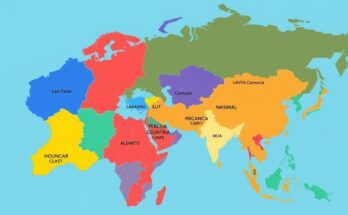In a landmark ruling last month, Indonesia’s Constitutional Court reaffirmed that citizens must declare a religious faith on official documents, effectively denying rights to atheists and nonbelievers. This ruling highlights the struggle faced in the world’s most populous Muslim nation, officially recognizing only six religions while leaving atheists unacknowledged in the legal framework. Atheism is stigmatized and not represented, making legal recognition a distant hope for many citizens who fear discrimination and persecution simply for their beliefs or lack thereof.
Despite hopes for progress following a 2024 ruling allowing minority religions to register as “non-specified believers,” the recent rejection of petitions by agnostic activists underscored a grim reality. Constitutional Court Justice Arief Hidayat declared religious belief a necessity rooted in Pancasila, the nation’s ideological foundation that mandates belief in a supreme deity. As a result, the court effectively closed the door on formal recognition of atheism within Indonesian law.
Activists grieve the impact of this judgment, witnessing the continued rise of Islamic fundamentalism since the late 1990s. Some reports indicate around 3.5 million atheists reside in Indonesia, often cloaked in silence for fear of repercussions. Human Rights Watch’s Andreas Harsono noted that the court’s decisions reflect broader societal tendencies, linking them to the increasing trends of extremism influencing legal interpretations and policies.
The Constitutional Court’s dismissal of non-belief rights has drawn minimal international scrutiny, often overshadowed by more visible religious and humanitarian crises in the region. Advocacy for nonbelievers largely goes unheard, contrasting starkly with the attention given to religious minorities in countries like Myanmar and Vietnam. Observers note that while the EU promotes religious freedom, it appears to neglect the specific plight of atheists and agnostics in Indonesia.
Voices like Harsono’s still cling to hope, asserting that there may be avenues to challenge the ruling through constitutional petitions. However, significant obstacles remain, necessitating public education on the values of religious freedom in Indonesia. While incremental change may seem daunting, there’s a belief that the court’s recent decisions could inadvertently inspire broader discussions around equality and the rights of those without faith.
Indonesia’s Constitutional Court ruled that citizens must declare a religion, denying rights to atheists. Despite previous progress with minority religious recognition, recent decisions emphasize faith’s necessity under Pancasila. Activists lament increasing discrimination, but some hope for future legal challenges amidst societal pressures and rising extremism.
Indonesia’s Constitutional Court has reaffirmed the requirement for citizens to declare a religious faith, sidelining atheists and nonbelievers in official matters. Despite previous expectations of more inclusive policies, recent rulings emphasize the nation’s strict adherence to religious identification as a foundational principle. Activists face significant hurdles in advocating for their rights, amidst a backdrop of rising religious extremism, yet hope for future change remains alive.
Original Source: www.dw.com



